External links
- The Nasty Rabbit at IMDb
- The Nasty Rabbit is available for free viewing and download at the Internet Archive
| The Nasty Rabbit | |
|---|---|
| Directed by | James Landis |
| Screenplay by |
|
| Produced by | Arch Hall Sr. (as Nicholas Merriweather) |
| Starring |
|
| Cinematography | Vilmos Zsigmond (as William Zsigmond) |
| Edited by | Anthony M. Lanza |
| Color process | Technicolor |
Production company | Rushmore Productions |
| Distributed by | Fairway International Pictures |
Release date |
|
Running time | 90 minutes |
| Country | United States |
| Language | English |
The Nasty Rabbit (also known as Spies a-Go-Go) is a 1964 American Techniscope spy comedy film directed by James Landis and starring Misha Terr and Arch Hall Jr.
A Russian submarine lands one of their agents disguised as a cowboy carrying a rabbit that is carrying a deadly virus. The Soviets plan for the rabbit to infect the United States through breeding with American rabbits with the goal of killing large numbers of Americans.
Richard Kiel stated in an interview with Tom Weaver that the lead composer Mischa "Michael" Terr [1] financed the film. [2] Arch Hall Jr. recalled that Terr wished to be an actor with Arch Hall Sr. writing the film about a Russian character. Pat and Lolly Vegas later formed the group Redbone.
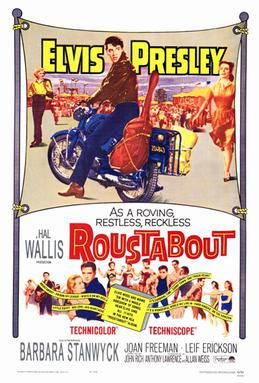
Roustabout is a 1964 American musical feature film starring Elvis Presley as a singer who takes a job working with a struggling carnival. The film was produced by Hal Wallis and directed by John Rich from a screenplay by Anthony Lawrence and Allan Weiss. The screenplay was nominated for a Writers Guild of America award for best written American musical although Roustabout received a lukewarm review in Variety. The film's soundtrack album was one of Elvis Presley's most successful, reaching no. 1 on the Billboard Album Chart. It was filmed in Techniscope at Paramount Studios, with carnival sequences shot in Thousand Oaks, California. Filming began in March 1964.
Ray Dennis Steckler, also known by the pseudonym Cash Flagg, was an American film director, producer, screenwriter and actor best known as the low-budget auteur of such cult films as The Incredibly Strange Creatures Who Stopped Living and Became Mixed-Up Zombies. In addition to Cash Flagg, Steckler was also known by the pseudonyms Sven Christian, Henri-Pierre Duval, Pierre Duvall, Sven Hellstrom, Ricardo Malatoté, Harry Nixon, Michael J. Rogers, Michel J. Rogers, Wolfgang Schmidt, Cindy Lou Steckler, R.D. Steckler, Ray Steckler, and Cindy Lou Sutters —- this last his "porn name".
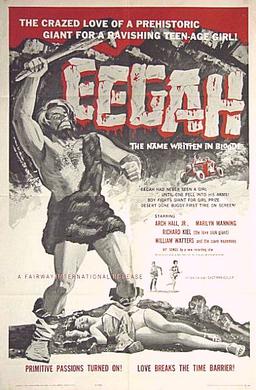
Eegah is a 1962 American horror film directed by Arch Hall Sr. and starring Arch Hall Jr., Marilyn Manning and Richard Kiel.
Redbone is an American rock band formed in Los Angeles, California, in 1969 by brothers Pat and Lolly Vegas. All members during their commercial peak and success were of Mexican American and Native American heritage, which was heavily reflected in their songs, stage costumes, and album art.
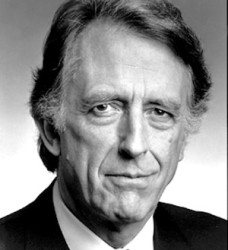
Fritz William Weaver was an American actor. He appeared in over 170 theatre, television, and film productions in a career spanning nearly 60 years.

The Jacksons: An American Dream is an American five-hour miniseries broadcast in two halves on ABC and originally broadcast on November 15 through November 18, 1992. It is based upon the history of the Jackson family, one of the most successful musical families in show business, and the early and successful years of the popular Motown group the Jackson 5.
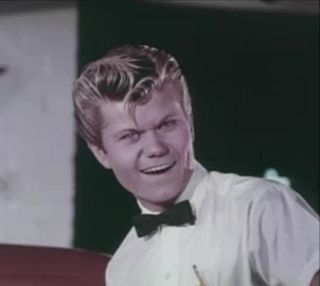
Arch Hall Jr. is an American former actor.
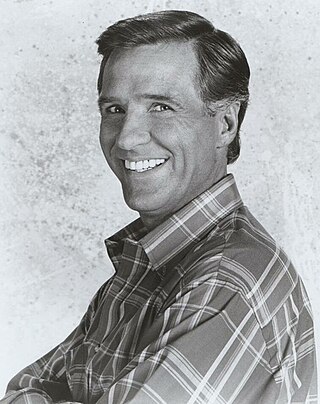
Kiel Urban Mueller, known professionally as Kiel Martin, was an American actor best known for his role as Detective John "J. D." LaRue on the 1980s television police drama Hill Street Blues.

The Golden Boot Awards were an American acknowledgement of achievement honoring actors, actresses, and crew members who made significant contributions to the genre of Westerns in television and film. The award was sponsored and presented by the Motion Picture & Television Fund. Money raised at the award banquet was used to help finance various services offered by the Fund to those in the entertainment industry.
William Bowers was an American reporter, playwright, and screenwriter. He worked as a reporter in Long Beach, California and for Life magazine, and specialized in writing comedy-westerns. He also turned out several thrillers.
The following is a list of players, both past and current, who appeared at least in one game for the Pittsburgh Pirates National League franchise (1891–present), previously known as the Pittsburgh Alleghenys (1882–1890).

Archibald Williams Hall, known as Arch, was an American actor and filmmaker, best known for making a series of B-movies in the early 1960s starring his son, Arch Hall Jr. Hall used various names throughout his career including Nicholas Merriwether, William Waters, and Archie Hall.

The Last Time I Saw Archie is a 1961 comedy film set in the waning days of World War II. Robert Mitchum stars as Arch Hall Sr., a lazy, scheming American in the Civilian Pilot Training Program, an aviation school for pilots too old to fly aircraft but not too old to fly military gliders and liaison aircraft. Jack Webb produced, directed and costarred.

Gary Clarke is an American actor best known for his role as Steve Hill in the NBC Western television series The Virginian with James Drury and Doug McClure.
Deadwood '76 is a 1965 American Techniscope Western film directed by James Landis and starring Arch Hall Jr. and Jack Lester.
Candido Albelando "Lolly" Vasquez-Vegas was a Mexican American musician of Indigenous descent. He played in numerous ensembles with his brother, Pat, including Pat & Lolly Vegas, The Avantis and Redbone. The brothers have Yaqui, Shoshone and Mexican heritage.

The Honeymoon's Over is a 1939 American comedy film directed by Eugene Forde and written by Leonard Hoffman, Hamilton MacFadden and Clay Williams. It is based on the 1921 play Six-Cylinder Love by William Anthony McGuire. The film stars Stuart Erwin, Marjorie Weaver, Patric Knowles, Russell Hicks, Jack Carson and Hobart Cavanaugh. The film was released on December 14, 1939, by 20th Century Fox.

Haldor de Becker was an American dancer and prolific writer about dance.

Patrick Vasquez-Vegas is a Native American musician of Yaqui/Shoshone descent, vocalist, writer, and producer of Redbone, known for their hit singles "Come and Get Your Love", "The Witch Queen of New Orleans", "Maggie", and "We Were All Wounded at Wounded Knee". He has played in numerous ensembles which include Pat and Lolly Vegas, The Avantis, and Redbone. Vegas, along with his Redbone bandmates, was featured in the Smithsonian National Museum of the American Indian for being the first rock/Cajun group of Native American ancestry to have a No. 1 single.

Sandy Is a Lady is a 1940 American comedy film directed by Charles Lamont and written by Charles Grayson. The film stars Baby Sandy, Billy Lenhart, Kenneth Brown, Eugene Pallette, Nan Grey, Tom Brown, Mischa Auer, Billy Gilbert and Edgar Kennedy. The film was released on May 21, 1940, by Universal Pictures.